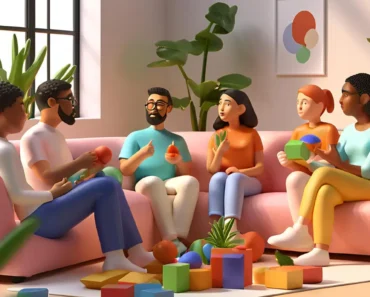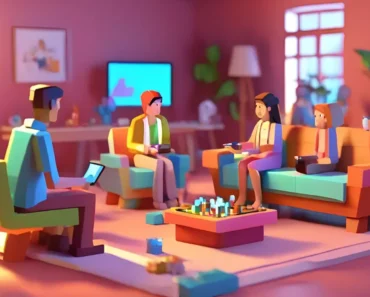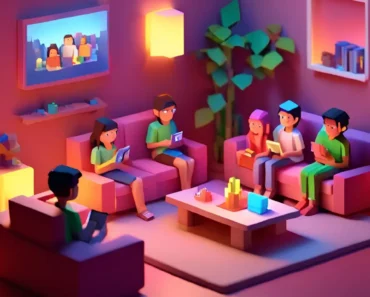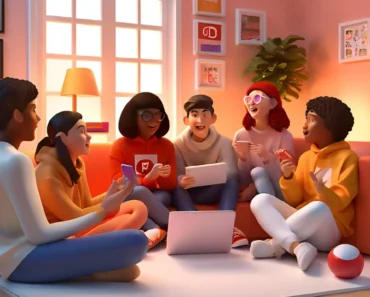How Smartphones Shape Kids’ Lives
Smartphones are central to modern childhood in the U.S. By age 11, 25% of kids own a smartphone, and 81% of kids aged 0–11 use the internet monthly, per 2024 data. For digital natives, born after 2010, smartphones offer entertainment, education, and social connection. Apps like YouTube Kids and Roblox dominate their time, with 80% of kids aged 6–12 using gaming platforms daily.
Smartphones provide access to educational tools, like math apps or online tutoring, used by 84% of U.S. students in 2024. They also enable social bonds through messaging or video calls, especially for kids in remote areas. However, heavy use—averaging 7 hours daily for teens—raises concerns. Are Smartphones Raising a Generation of Anxious Kids? The answer lies in how devices influence emotions, sleep, and social interactions, which we explore next.
Why Smartphones May Increase Anxiety
Several factors link smartphone use to anxiety in kids, creating a complex challenge for U.S. families.
Social Media Pressure
Social media apps like TikTok and Instagram expose kids to comparison and judgment. A 2024 study found 60% of teens feel pressure to look perfect online, triggering anxiety. Negative comments or low likes can harm self-esteem, especially for pre-teens.
Fear of Missing Out (FOMO)
Constant notifications and social updates fuel FOMO. A 2023 survey noted 55% of U.S. teens feel anxious when missing online events, driving compulsive phone use that disrupts focus and calm.
Sleep Disruption
Smartphone screens emit blue light, reducing melatonin. A 2024 report found 75% of U.S. teens use devices before bed, leading to poor sleep and heightened anxiety in 65% of cases.
Overstimulation
Fast-paced apps and games overstimulate young brains. A 2023 study linked excessive screen time to reduced attention spans in 60% of kids aged 8–12, increasing stress and irritability.
These factors suggest Smartphones Raising a Generation of Anxious Kids is a valid concern, as unchecked use amplifies emotional strain.
Benefits of Smartphones for Kids
Despite risks, smartphones offer benefits that can support mental health when used wisely.
Access to Learning
Educational apps enhance skills, with 70% of U.S. kids using tools like Khan Academy, per 2024 data. Learning through interactive platforms builds confidence and reduces stress for struggling students.
Social Connection
Smartphones connect kids with friends and family, especially during isolation. A 2023 survey found 80% of teens use messaging apps to stay in touch, easing loneliness.
Creative Outlets
Apps for drawing, music, or video editing spark creativity. A 2024 report noted 65% of kids engage in creative digital activities, boosting self-expression and emotional well-being.
These benefits show smartphones aren’t inherently harmful. The challenge lies in balancing use to avoid anxiety, a key aspect of whether Smartphones Raising a Generation of Anxious Kids.
Challenges Parents Face
Parents struggle to manage kids’ smartphone use, complicating efforts to reduce anxiety.
Enforcement Struggles
A 2024 survey found 65% of U.S. parents face arguments when limiting screen time, especially with teens who view phones as social necessities.
Parental Tech Use
Parents’ own habits—70% spend 3–4 hours daily on phones, per 2024 data—set conflicting examples, making kids resistant to rules.
Tech Integration in Schools
With 80% of U.S. students using devices for school, per 2024 data, parents find it hard to separate educational and recreational use, blurring boundaries.
Lack of Awareness
Many parents underestimate smartphones’ mental health impact. A 2023 study noted 45% of parents don’t link screen time to anxiety, delaying action.
These challenges highlight why addressing Smartphones Raising a Generation of Anxious Kids requires proactive, informed parenting.
Read Also: Why Grandparents Are Joining TikTok (And Why It Matters)
Strategies to Reduce Anxiety from Smartphone Use
– Create Tech-Free Zones: Ban phones from bedrooms and dining areas. A 2024 study found 80% of families with tech-free dinners report better bonding.
– Teach Digital Literacy: Show kids how to spot harmful content or manage notifications. Workshops or apps like Common Sense Media guide safe use.
– Model Healthy Habits: Parents should limit their screen time to 2–3 hours daily, showing kids balanced behavior.
– Promote Alternatives: Encourage hobbies like sports, reading, or art. A 2024 report found kids with diverse activities use screens 30% less.
These strategies help ensure Smartphones Raising a Generation of Anxious Kids becomes less of a concern, fostering calm and connection.
Conclusion: Balancing Smartphones for a Healthier Generation
Fostering Digital Wellness in Kids
Are Smartphones Raising a Generation of Anxious Kids? The evidence suggests they can, with social media, FOMO, and sleep issues driving anxiety in 20% of U.S. kids. Yet, smartphones also offer learning, connection, and creativity when used wisely. Parents face challenges like enforcement and their own tech habits, but clear limits, tech-free zones, and digital literacy can mitigate risks. By modeling balanced behavior and encouraging offline activities, U.S. families can ensure smartphones enhance rather than harm mental health. Thoughtful management transforms devices into tools for growth, helping kids thrive in a digital world with confidence and calm.
Frequently Asked Questions About Smartphones and Kids’ Anxiety
Are Smartphones Raising a Generation of Anxious Kids?
Yes, excessive use, social media pressure, and sleep disruption can increase anxiety in 20% of U.S. kids, per 2024 data, but balanced use reduces risks.
How does social media affect kids’ mental health?
Social media triggers anxiety through comparison and negative feedback, with 60% of teens feeling pressure to look perfect online, per 2024 studies.
What screen time limits help reduce anxiety?
Cap recreational use at 2 hours daily and ban screens before bed to improve sleep and focus, as recommended by 2024 guidelines.
How can parents manage kids’ smartphone use?
Use parental controls, set tech-free zones, and model healthy habits to guide kids toward balanced, anxiety-free tech use.
Do smartphones have benefits for kids?
Yes, they support learning, social connection, and creativity, with 70% of kids using educational apps and 65% engaging in creative activities, per 2024 data.





